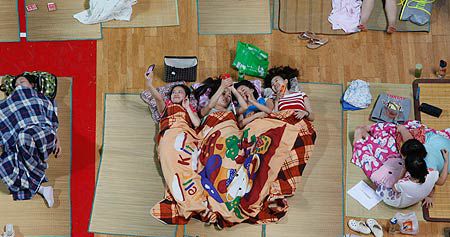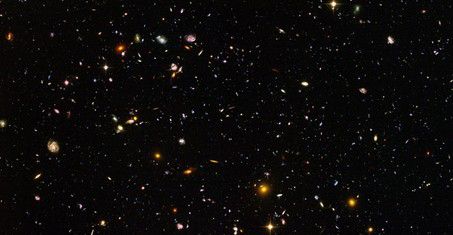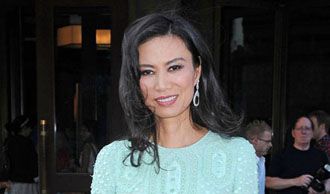BBC:3月不容错过的十本好书
|
Dan Chaon, Ill Will Dustin, a Cleveland psychologist in his 40s, is still damaged by the monstrous murder of his parents, aunt and uncle when he was 13. He testified against his older foster brother Rusty, who was sentenced to life in prison. Dustin's wife is dying from ovarian cancer, and he can barely connect with his teenage sons. His professional distance is challenged by Aqil, a new client, a former policeman obsessed with a string of drownings of drunken young men. And he learns that new DNA evidence has freed Rusty. As Aqil draws Dustin into an amateur investigation, Rusty reaches out to Dustin's troubled son Aaron. Imagine the shower scene in Psycho, extended across 11 sections and three decades, with multiple unsolved mysteries. That's the level of intensity Chaon achieves in this dark, provocative thriller. Hannah Tinti, The Twelve Lives of Samuel Hawley Loo's mother Lily is dead, her devoted father Samuel is a mystery she deciphers through the dozen bullet wounds on his body - he, remarkably is alive - and his personal mementoes. At the age of 12 he teaches her how to shoot a gun. Shortly after, he moves her to her mother's hometown, a Massachusetts fishing village. There they subsist mostly on his catch and Loo deals with being an outsider at school. Over the years Loo questions her mother's death by drowning and discovers elements of her father's criminal past. Tinti spells it out in chapters based on each of the bullets that pierced his body (Bullet Number Three on Whidbey Island; Number Six in Alaska within view of the glacier where icebergs are born). Domenico Starnone, Ties Novelist Jhumpa Lahiri's first published translation of an Italian text is the 11th novel from the Strega-award winning Neapolitan writer Starnone. It's a story of family ties disrupted, and of the echoes of marital distress played out over many decades, into the next generation. Starnone toggles between past and present, giving equal time to the voices of Vanda and her husband Aldo, and adding the perspectives of their son Sandro and daughter Anna. He frames his tale with a mysterious home invasion. Each detail resonates, from the name of the family cat to the idiosyncratic way in which Aldo ties his shoes to his cherished Polaroids. Distinguished by its distinctive characters and clarity of tone, Ties is a gem. Meg Howrey, The Wanderers Howrey's new novel was inspired by a 2011 news report on Mars500, a 520-day simulation of a space trip to Mars with a six-member crew from Russia, China and Europe. She gives equal time to Yoshi, Sergei and Helen, a crew of three astronauts from Japan, Russia and the US, who hope to be chosen for the Mars mission sponsored by a private company. As they endure a 17-month simulation, each must prove to have the stamina, sanity and discipline to withstand the enforced isolation and the series of calculated failures created by the "sim" team. The key question for each: "Does it feel real?" Douglas Coupland, Bit Rot Canadian writer, designer and artist Coupland names his new collection of stories and essays for a digital archiving term describing how files can spontaneously decompose. With characteristic wit, he extends that term to describe "the way my brain has been feeling since 2000, as I shed older and weaker neurons and connections and create and enhance new and unexpected ones." Bit Rot offers priceless insights. Few people are better at explaining the ramifications of the digital era. Jami Attenberg, All Grown Up Andrea Bern is turning 40 soon. She's an independent woman: "I'm alone. I'm a drinker. I'm a former artist. I'm a shrieker in bed." Still, despite eight years in therapy, she's questioning what it means to be an adult. She left art school in Chicago to come back to New York ("Spiritually, it's a reverse commute"). She left her art career for a full-time job, chose not to marry or have a child. She's paid off her student loans, and furnished an apartment. Attenberg captures the kaleidoscopic flow of Andrea's life in spare and witty vignettes that build to a surprising and moving conclusion. Paul La Farge, The Night Ocean The bizarre and the scandalous float through this novel, an alternate history that speculates about the connection between seminal American horror writer HP Lovecraft and a gay fan named Robert Barlow. The two lived together for several months in 1934, when Lovecraft was 43 and Barlow was 16. They collaborated on a story called The Night Ocean before Lovecraft died in 1937. La Farge constructs a story within a story filled with artifice – a faux document (the Erotonimicon, a supposed Lovecraft diary), false identities and faked suicides. Psychiatrist Marina Willett watches as her husband Charlie becomes obsessed with Lovecraft and believes he has found Barlow alive and living in Canada. Then Charlie disappears. This many-layered literary mystery is chockablock with surprise appearances – William Burroughs, Ursula Le Guin, Diego Rivera, Roy Cohn, to name a few. Helene Cooper, Madame President Pulitzer Prize-winning American journalist Cooper, who was born in Liberia, traces the rise of Ellen Johnson Sirleaf, the first democratically elected female president in Africa and a 2011 Nobel Peace Prize winner. Sirleaf was born in 1938, educated in Monrovia and the US (including a master's degree at Harvard), and served as finance minister. Jailed by the military dictator Samuel Doe, she went into exile. In the 2005 presidential elections, Sirleaf generated a huge voting bloc of Liberian women, leading her to victory. Cooper's incisive portrait is undergirded by her reporting on the country's internal power struggles and years of dictatorial rule, Doe's bloody military coup and civil war sparked by the notoriously brutal Charles Taylor. She also details the challenges Sirleaf met, including a $4.7 billion debt and the Ebola virus. Mathias Enard, Compass Compass chronicles one long night of memory, opium, illness and insomnia spent by Franz Ritter, a musicologist with an interest in Iranian music. Franz is entranced with the intersection of East and West, and with Sarah, a copper-haired academic with a fiery intellect. Now Sarah has written him from Sarawak, bringing up recollections, including their intimate overnight in Palmyra, academic conferences in Tehran, a voyage to Beirut with Nadim, the Iranian musician she marries. Haunted by unrequited love, Franz meditates on his treasured compass, once owned by Beethoven, which always points east. Compass, which won France's Priz Goncourt, is poetic, ironic, irresistible. Elif Batuman, The Idiot Selin, the daughter of Turkish immigrants, arrives at Harvard in 1995 – at the dawn of email – ready to take on all intellectual challenges that come her way. She makes friends with Svetlana, a Serbian classmate, and becomes close with Ivan, a Hungarian upperclassman. Thanks to Ivan, she spends the summer after her freshman year in Europe, with a job teaching English in Hungarian villages. Seline is open-minded and adventurous ("I got on a random tram to see where it went," she notes during a visit to Budapest). Batuman's sardonic wit makes for a delectable unfolding of Selin's experience of love, life and language. |








